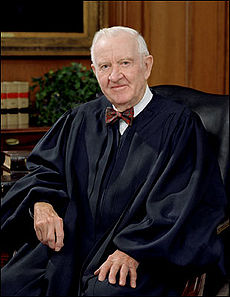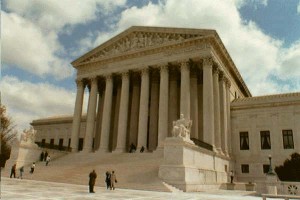With Obama Elected, Will This Be the Last Term for Justice Stevens?
 Justice John Paul Stevens has long been regarded as a stalwart of the Supreme Court’s liberal wing, but he turns 89 next year. If he cares about having an ideologically similar successor on the Court, he may want to retire on a timetable that will permit a successor to be confirmed in time for the start of the next October term. Not only would this permit a smooth transition for his colleagues, but it would also allow soon-to-be-President Obama to take advantage of his party’s large majority in the Senate. Mid-term elections are notoriously tough on sitting presidents, so it might be risky for Stevens to wait much longer — from the standpoint of maximizing the odds of an easy confirmation for a liberal successor.
Justice John Paul Stevens has long been regarded as a stalwart of the Supreme Court’s liberal wing, but he turns 89 next year. If he cares about having an ideologically similar successor on the Court, he may want to retire on a timetable that will permit a successor to be confirmed in time for the start of the next October term. Not only would this permit a smooth transition for his colleagues, but it would also allow soon-to-be-President Obama to take advantage of his party’s large majority in the Senate. Mid-term elections are notoriously tough on sitting presidents, so it might be risky for Stevens to wait much longer — from the standpoint of maximizing the odds of an easy confirmation for a liberal successor.
But I hope that Stevens will not act in so transparently political a manner. The Court’s legitimacy rests to no small extent on perceptions that its members are above politics. Sure, anyone who is paying attention knows that there are “liberals” and “conservatives” on the Court, and no once can reasonably expect the Justices entirely to suppress their fundamental political values when they decide cases. But that sort of partisanship is different than trying to control the composition of the Court, which seems to me something considerably crasser. I hope that Stevens remains on the Court for as long as he feels that he can function effectively — even if that means President Palin selects his successor.

